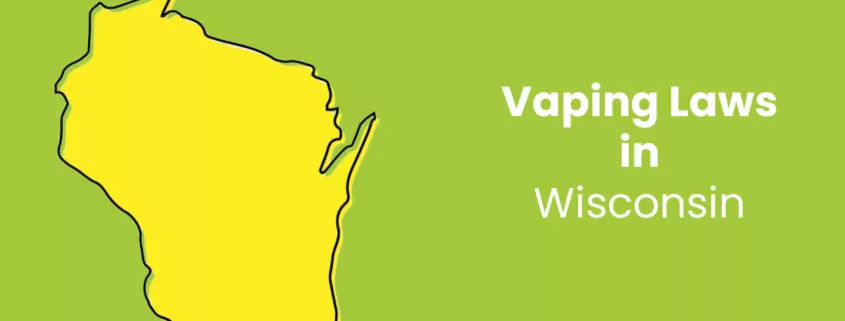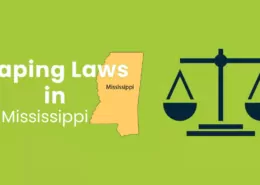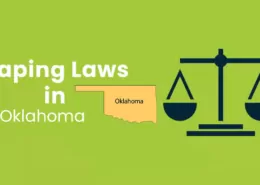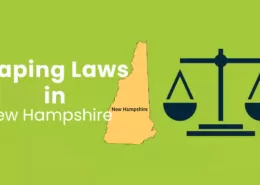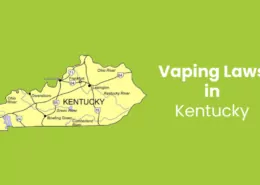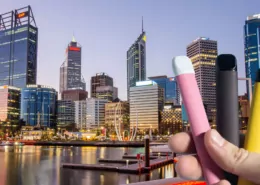Vaping Laws in Wisconsin: Age, Sales, Tax & New Registry
From the bustling streets of Milwaukee to its serene northern forests, Wisconsin presents a unique and rapidly evolving regulatory landscape for vaping products. For consumers, retailers, and manufacturers, understanding these multifaceted regulations is essential for legal compliance and navigating the market. This guide provides an in-depth look at Wisconsin’s current and upcoming vaping laws, incorporating the latest legislative updates and authoritative sources to help you understand what’s legal, what’s changing, and what it means for you.
Is Vaping Legal in Wisconsin?
Yes, vaping is legal for adults aged 21 and over in Wisconsin. However, it is subject to a complex set of regulations regarding which products can be sold, who can purchase them, and where they can be used. A significant new law, currently facing a legal challenge, is set to drastically restrict product availability in late 2025.
What Wisconsin Considers a Vapor Product
A “vapor product” is defined under Wis. Stat. § 139.75(14) as “a noncombustible product that produces vapor or aerosol for inhalation from the application of a heating element to a liquid or other substance that is depleted as the product is used, regardless of whether the liquid or other substance contains nicotine.” This includes e-cigarettes, e-cigars, and similar devices. A “nicotine product” is defined as “a product that contains nicotine and is not a tobacco product or cigarette,” ensuring that nicotine-containing vapes are covered under youth access laws.
Age Restrictions of Vaping in Wisconsin
Wisconsin has a somewhat confusing dual-age system that creates enforcement challenges. While Wisconsin state law (e.g., Wis. Stat. § 134.66) technically prohibits sales to anyone under 18, the federal “Tobacco 21” law, effective nationwide since December 2019, requires all tobacco and vaping product sales to be restricted to those 21 and older. Federal law supersedes state law in this instance, meaning retailers must enforce the 21-year minimum age to be compliant.
Retailers are required to check a valid, government-issued photo ID for any customer who appears to be under the age of 30. Penalties for selling to minors can include fines up to $500 and potential license suspension for repeat offenses.
The PMTA Registry Law in Wisconsin
The most recent development in Wisconsin’s vaping regulation is Wisconsin Statute 995.15, enacted as part of Wisconsin Act 73 and effective from July 1, 2025. This law creates an Electronic Vaping Device Directory and effectively bans the sale of most vaping products currently on the market.
What the Registry Law Requires
To be legally sold in Wisconsin, a vaping product must be listed on a state-managed registry maintained by the Wisconsin Department of Revenue. To qualify for this directory, a product must either:
- Have received a marketing authorization order from the U.S. Food and Drug Administration (FDA) through its Premarket Tobacco Product Application (PMTA) process.
- Have been marketed in the U.S. as of August 8, 2016, had a PMTA submitted to the FDA by the September 9, 2020, deadline, and that application must still be under active review by the FDA.
Manufacturers must pay a $500 annual fee for each device they want listed in the directory.
Impact and Enforcement Timeline
The enforcement of this law begins on September 1, 2025. After this date, it will be illegal for retailers to sell any vaping product not listed in the state directory. The penalties are severe: retailers face fines of $1,000 per day, per unlisted device. Unlisted products are considered contraband and are subject to seizure and destruction. Retailers have only 21 days to remove products from their shelves after an item is removed from the directory.
Because the FDA has authorized very few vaping products (only 39 as of early 2025, mostly tobacco and menthol flavors from major tobacco companies), this law is expected to eliminate 70-90% of currently available vaping products from Wisconsin retailers, including most popular disposable vapes and flavored e-liquids.
Legal Challenges
This law has faced immediate legal opposition. In June 2025, a trade group named WiscoFAST (Wisconsinites for Alternatives to Smoking and Tobacco) filed a federal lawsuit against the Wisconsin Department of Revenue, challenging the law’s constitutionality. The lawsuit argues that the state law violates the Supremacy Clause of the U.S. Constitution by usurping the FDA’s federal authority to regulate these products. A similar law in Iowa was recently blocked by a federal judge on these grounds. The lawsuit seeks a preliminary injunction to halt the law’s enforcement while the case proceeds. As of mid-2025, the law remains in effect pending the outcome of this litigation.

Where Vaping is Prohibited in Wisconsin
A key feature of Wisconsin’s vaping laws is the difference between statewide rules and local authority.
Wisconsin’s Clean Indoor Air Act and Vaping
Wisconsin’s statewide Clean Indoor Air Act, which prohibits smoking in most public places and workplaces, including restaurants and bars, does NOT explicitly include vaping products. This means there is no statewide ban that automatically prohibits vaping in all the same places where smoking is banned. The only specific state-level location prohibition applies to Wisconsin State Fair Park, where e-cigarette use is prohibited in indoor facilities and the main stage area.
Local Ordinances
Because the state’s Smoke-Free Air Law does not cover vaping, local municipalities and counties have the authority to enact their own, often stricter, ordinances. This has created a “patchwork” of regulations across Wisconsin. As of 2025, at least 39 municipalities have passed local laws that do prohibit vaping wherever smoking is banned. These include most of the state’s major population centers:
- Milwaukee
- Madison
- Green Bay
- Appleton
- Eau Claire
- Kenosha
- La Crosse
- Oshkosh
- Racine
- Wausau
In these and other jurisdictions with local bans, vaping is prohibited in indoor workplaces, restaurants, bars, and other public spaces. Some municipalities, like Monona, have even enacted temporary moratoriums on new vape shop openings to develop zoning ordinances. The key takeaway for vapers is to always look for local signage and be aware of specific city or county rules.
Ecigator is one of the well-known vape brands spun off from FM Technology Co., Ltd, it’s an ISO-certified disposable vape manufacturer for OEMs, ODMs, and OBM since 2010. The founder team comes from top firms with more than 10 years of experience in the vaping industry and has devoted thousands of hours to providing users with a better and better experience.
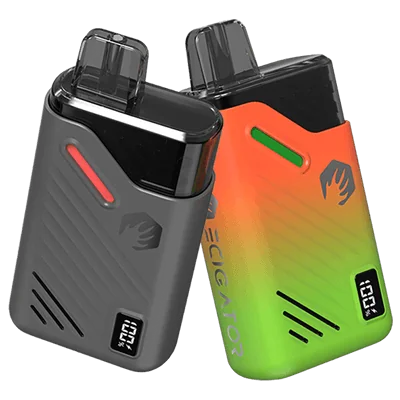
18K Disposable Pod Kit
Disposable Pod Kit – 18ml changeable pod with 650mAh rechargeable battery.
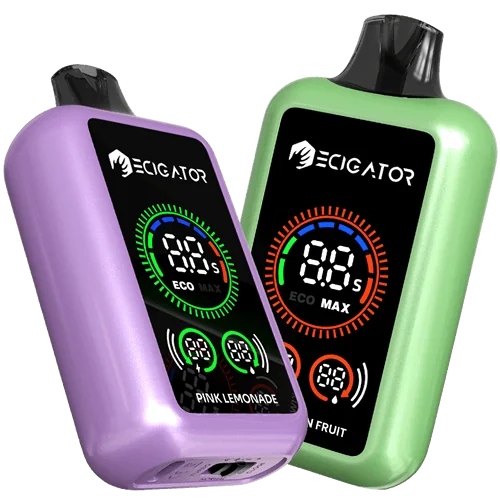
20K with Large Screen
20000 Puffs Disposable Vape with large screen. Normal and Boost working modes.
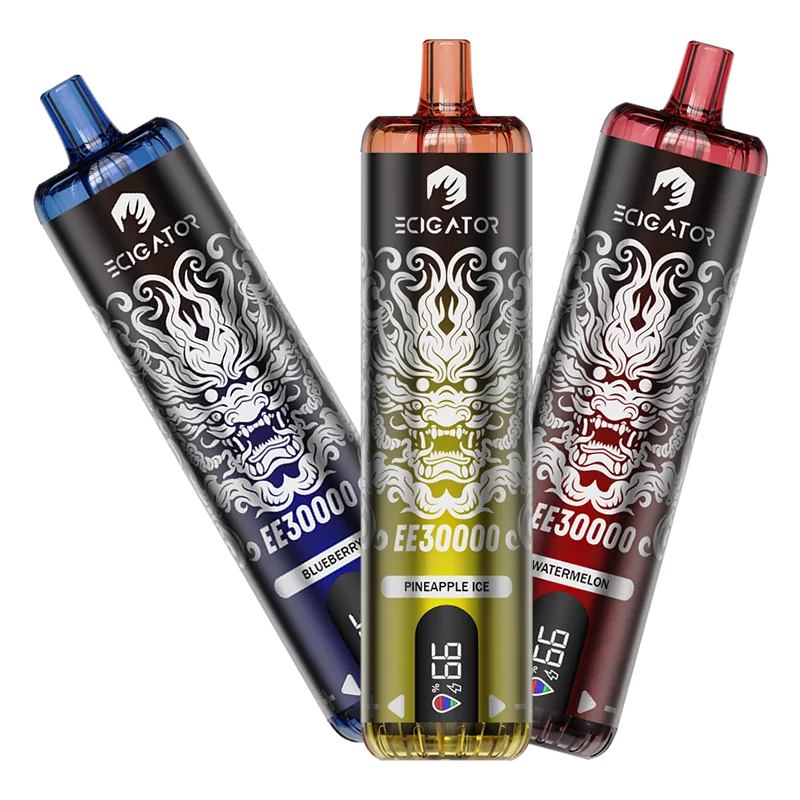
30K DTL Disposable
30K Puffs DTL(Directly to Lung) disposable vape with airflow control and screen.
Selling Vaping Products in Wisconsin
The sale of vaping products in Wisconsin is a regulated activity with specific requirements for licensing and sales practices.
Mandatory Retailer Licensing
As of March 6, 2024, Wisconsin Act 73 requires all retailers selling electronic vaping devices to obtain a retail license from their local municipal clerk, regardless of whether they also sell traditional tobacco products. Previously, vape-only shops were not required to be licensed. Retailers must use Form CTV-100 for their application. The annual licensing fee is typically $100, and licenses are valid from July 1 to June 30 each year.
Sales Practices and Product Requirements
- No Self-Service Displays: Self-service displays of vapor products are prohibited except in tobacco specialty stores or other locations that are physically inaccessible to individuals under 21.
- Vending Machines: Vending machine sales are restricted to locations where individuals under 21 are not permitted access.
- Online Sales: Online sales to Wisconsin consumers must comply with all state licensing and tax requirements, as well as the new Electronic Vaping Device Directory rules. They must also adhere to federal PACT Act requirements, which include robust age verification and shipping restrictions.
Taxation of Vaping Products
Wisconsin imposes a state excise tax on vapor products. The tax rate is $0.05 per milliliter of the liquid or other substance within the product, regardless of nicotine content. This tax is levied on distributors who bring untaxed products into the state. This rate places Wisconsin among the states with the lowest vaping taxes nationally. Monthly tax returns are required using Form TT-100.
The Status of Flavored Vaping Products
As of 2025, Wisconsin does not have a statewide ban on the sale of flavored vaping products. However, the new PMTA registry law (Statute 995.15) will act as a de facto ban on most flavored products starting September 1, 2025. Because the FDA has not authorized any flavored vaping products (other than tobacco and menthol in very limited cases), these products will not be eligible for the state’s approved directory and will become illegal to sell.

ECIGATOR
Ecigator is one of the well-known vape brands spun off from FM Technology Co., Ltd, it’s an ISO-certified disposable vape manufacturer for OEMs, ODMs, and OBM since 2010. The founder team comes from top firms with more than 10 years of experience in the vaping industry and has devoted thousands of hours to providing users with a better and better experience.
Hemp-Derived Vaping Products in Wisconsin
The broad language of the new registry law created an unintended consequence for Wisconsin’s legal hemp industry. Hemp-derived vaping products containing legal cannabinoids like CBD or Delta-8 THC do not go through the FDA’s PMTA process for tobacco products. As a result, they would also be banned under the new law. In response, corrective legislation (Assembly Bill 234 / Senate Bill 257) was introduced in May 2025 to exempt hemp-derived vaping products from the electronic vaping device registry, while keeping them subject to other state regulations. This highlights the complex intersection of tobacco and hemp regulations.
Conclusion:
Wisconsin’s vaping laws in 2025 represent one of the most dynamic and restrictive regulatory environments in the United States. The implementation of the Electronic Vaping Device Directory on September 1, 2025, is set to fundamentally reshape the market, likely eliminating the vast majority of currently available products and imposing severe penalties on non-compliant businesses. While the law is currently facing a federal court challenge, retailers and consumers must prepare for these dramatic changes.
For businesses, survival requires navigating municipal licensing, state tax obligations, and, most critically, preparing for the dramatic inventory restrictions imposed by the new registry law. As litigation proceeds and corrective legislation for hemp products advances, Wisconsin’s vaping regulatory landscape will undoubtedly continue to evolve throughout 2025 and beyond.
References
- Wisconsin DHS – Campaign to Reinforce Age 21 Tobacco Law (Feb 2023)
- Wisconsin DHS – Tobacco 21 Information
- Wisconsin Department of Revenue – New Retail License Form (PDF)
- Wisconsin DHS – E-Cigarettes Information
- Wisconsin Department of Revenue – Form CTV-100 (PDF)
- Is It Illegal to Vape or Smoke While Driving in the UK? - August 11, 2025
- Virginia Roanoke Considers $20,000 Annual Fee for Vape Shops - August 11, 2025
- Mississippi to Ban Unauthorized Vape Products in October - August 11, 2025

